What’s in store for 2015? A whole lot of trouble, at least according to 1,500 experts from the World Economic Forum. The group’s outlook for next year contains mostly bad news for the planet (sorry). Here is a rundown:
Deepening inequality
“In developed and developing countries alike, the poorest half of the population often controls less than 10% of its wealth,” says the report. “This is a universal challenge that the whole world must address.” Inequality was rated the most significant issue in the year ahead, and not just for moral reasons: Unequal societies tend to be less successful over time.
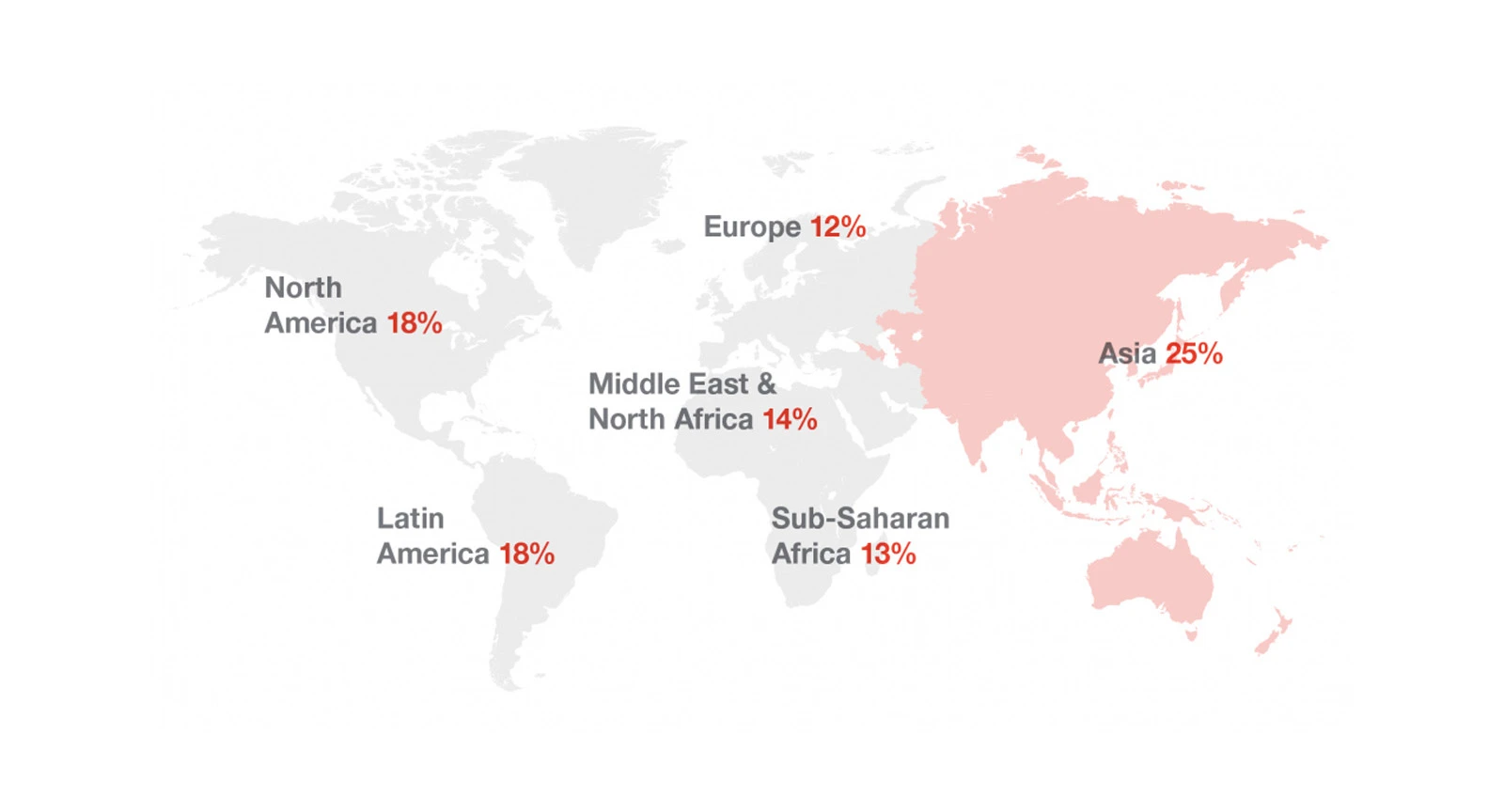
in the next 12-18 months? Click graphic to see enlargement of survey results.
Jobless growth
Economic growth used to mean jobs. No longer. These days, output can grow overall, with no uptick in employment. The report says this could get worse: “The robotics and 3-D printing revolutions could accelerate this trend still further, as the comparatively low entry cost for these disruptive technologies makes them widely accessible to everyone, including developing economies.”
A Leaderless world
Eighty-six percent of leaders surveyed say there’s a crisis in leadership today. “We have a surge of incredibly smart, enabled people coming out of education, building great companies and showing us the radical pace of innovation,” the report says. “[But] when we look at our governments and international institutions, it is tempting to only see ritual, politics, and little progress.”
Geo-strategic competition
Some thought the end of the Cold War would mean the end of history. Not so fast. We still have ideological battles and countries are as competitive as ever. “The changing relationship between world powers has reduced the political energy available for tackling shared problems like climate change and global health,” the report says.
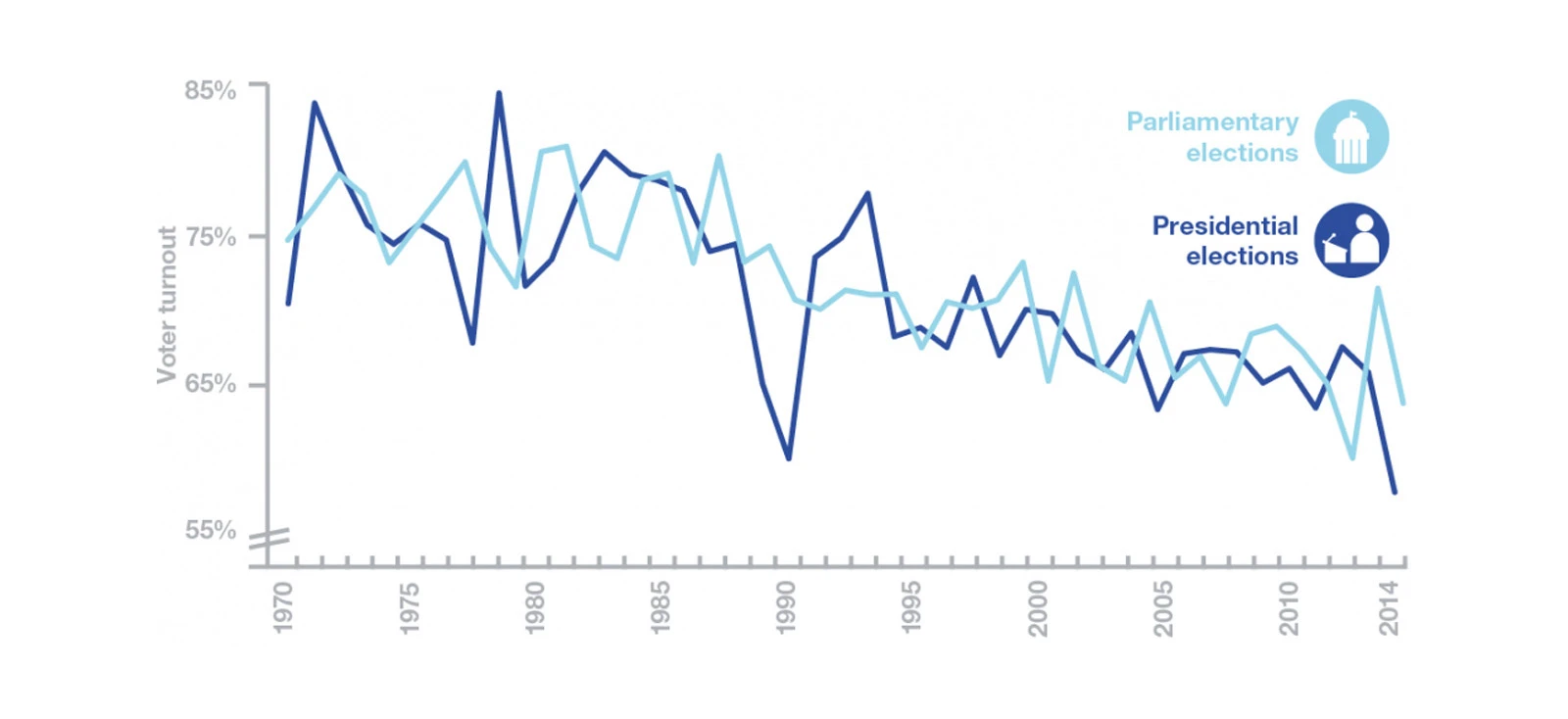
Democratic doldrums
Social media gives people a voice like never before, “yet there is a fundamental disconnect between citizens around the world and the elected officials that supposedly represent them.” This seems to be as true in the U.S. as anywhere.
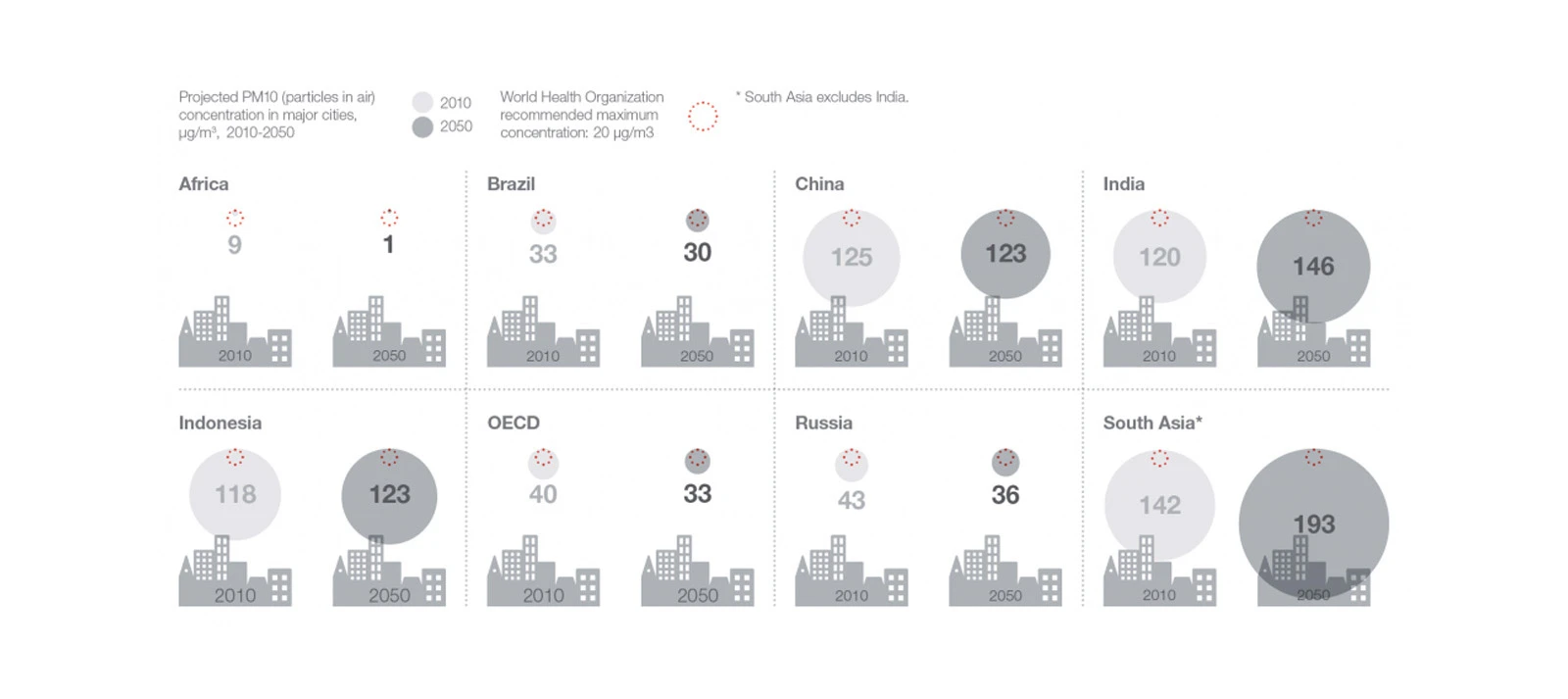
Pollution up and up
The rise of the emerging world has come at a huge environmental cost. China’s air pollution, for instance, led to 1.2 million premature deaths in 2010 (that is, people dying before life expectancy dates). “There needs to be a flow of funding to the developing world, providing the means to finance change, and we must cooperate to develop new low-carbon technologies,” the report says.
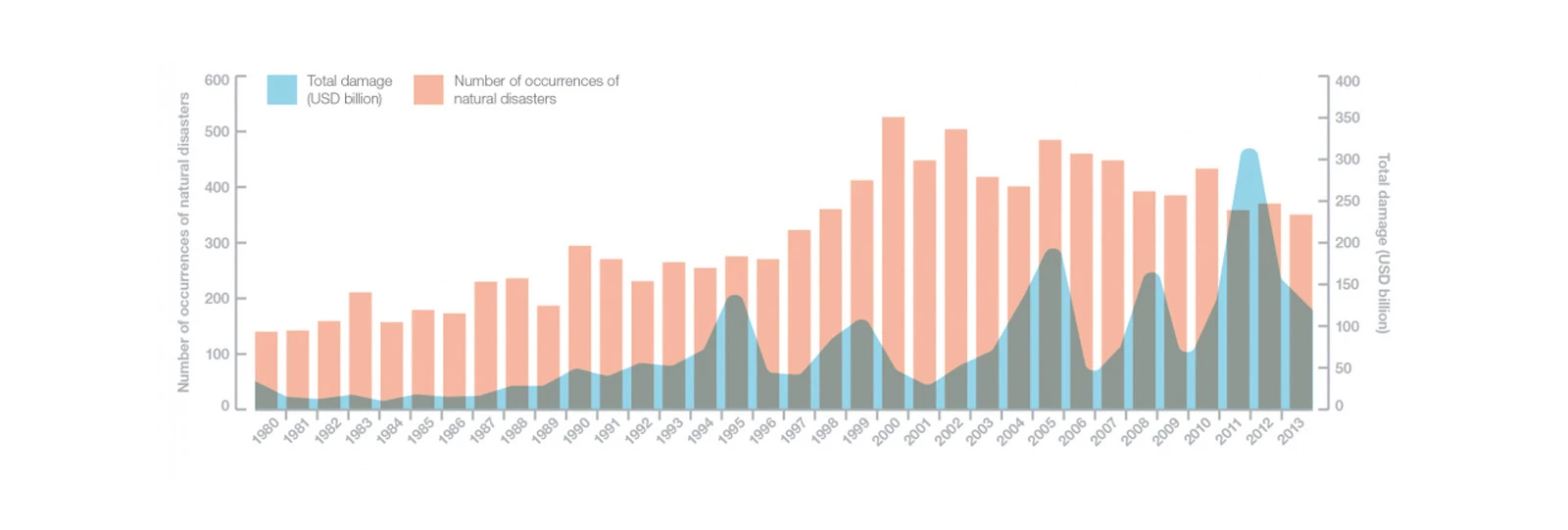
Severe weather
Related to worsening pollution, severe weather events have also been on the rise. “The irony and cruelty of climate change is that the costs of extreme weather events are highest for society’s poorest. They are those least able to cope and least able to afford insurance,” the report says. Ninety percent of respondents think Asia will be the worst hit continent.
Nationalism
Ranked the eighth most significant issue, the experts expect nationalism to be on the increase in 2015. The rise of nationalists in Scotland is just one indictor of the trend; many other nationalist parties on doing well too.
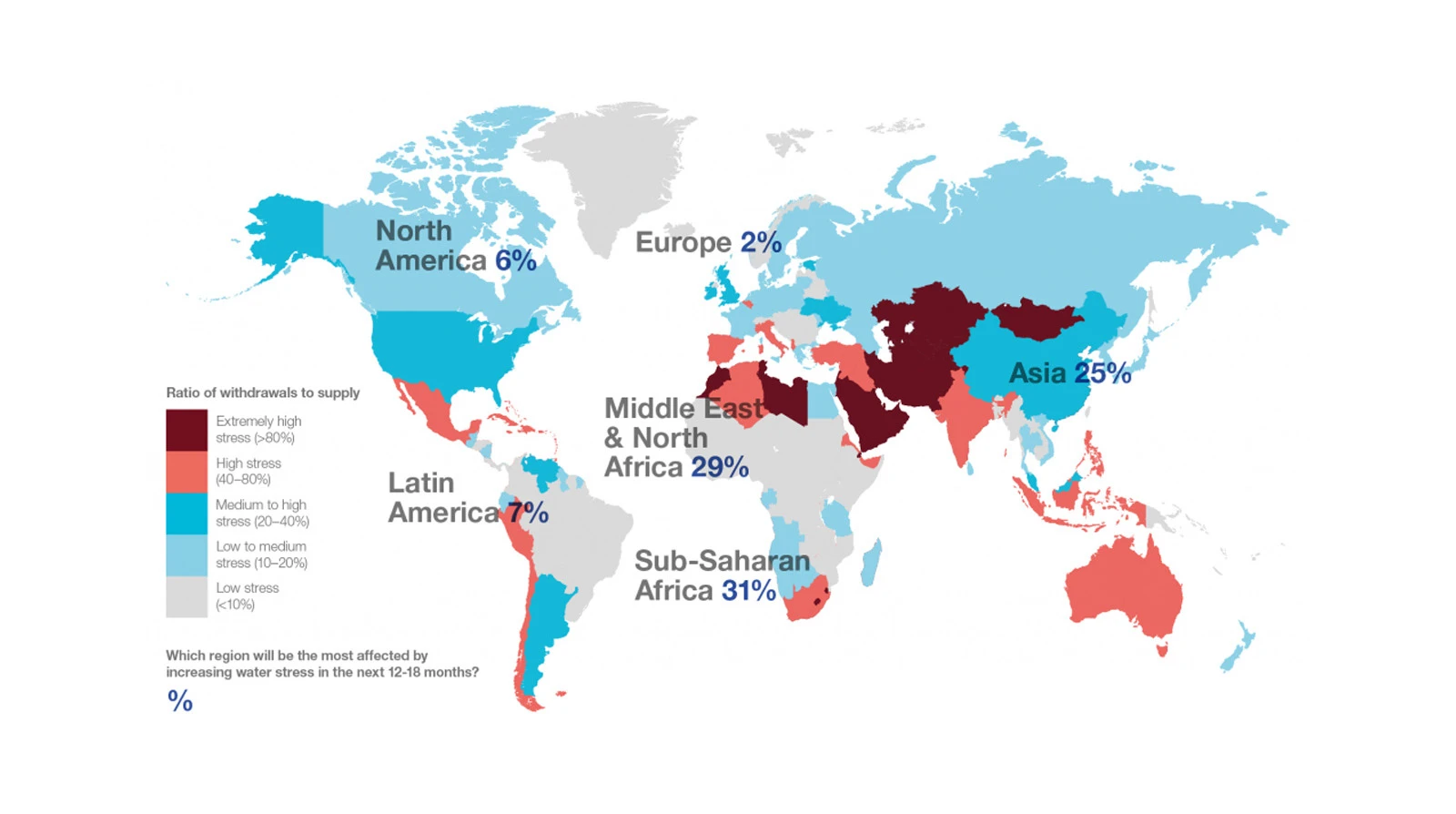
Water stress
Water stress is a big emerging issue. The experts expect Sub-Saharan Africa and Asia to be worse affected. “People must urgently recognize that, for 750 million of us, the water crisis is very real,” the report says.
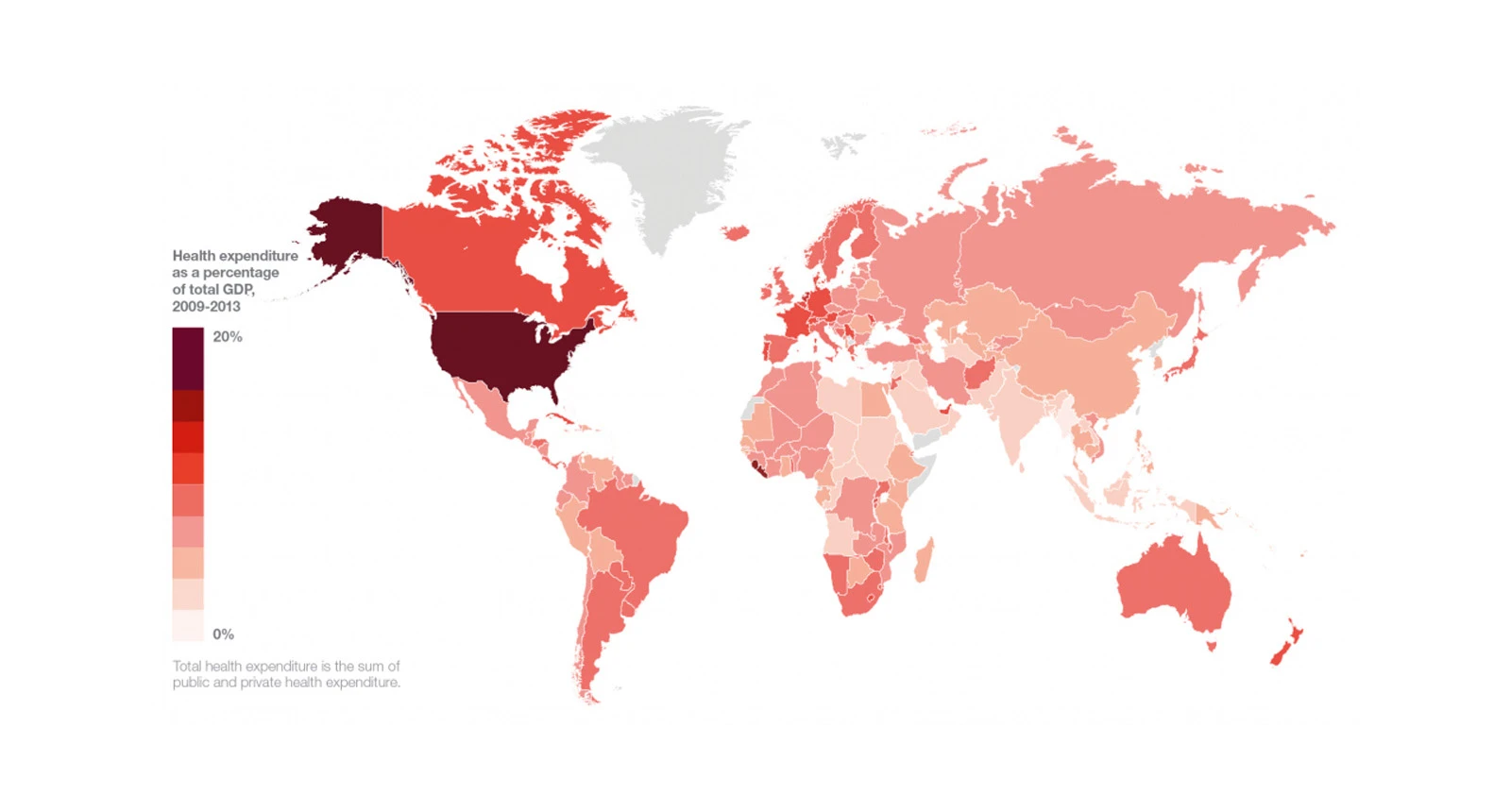
Rising health care costs
The experts expect countries to spend increasing proportions of their income on health care (as the U.S. is doing). The bad news: non-communicable diseases like cancer, hypertension, diabetes and heart disease are rising in the developing world. The good news: “Technology makes it easier to prevent, detect and treat these conditions. With the development of electronic health records, remote treatment, and the ability to share data online, we have an array of new health care solutions available, even in low-income settings.”
You can read more of the report here. You might want to go have a drink first though.
Recognize your brand’s excellence by applying to this year’s Brands That Matter Awards before the early-rate deadline, May 3.















